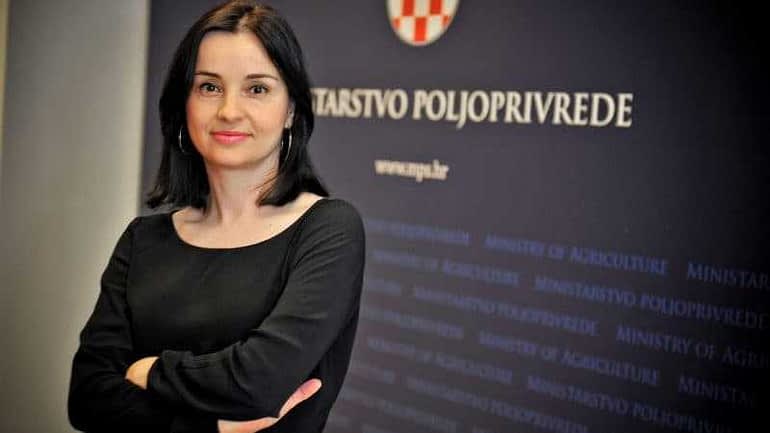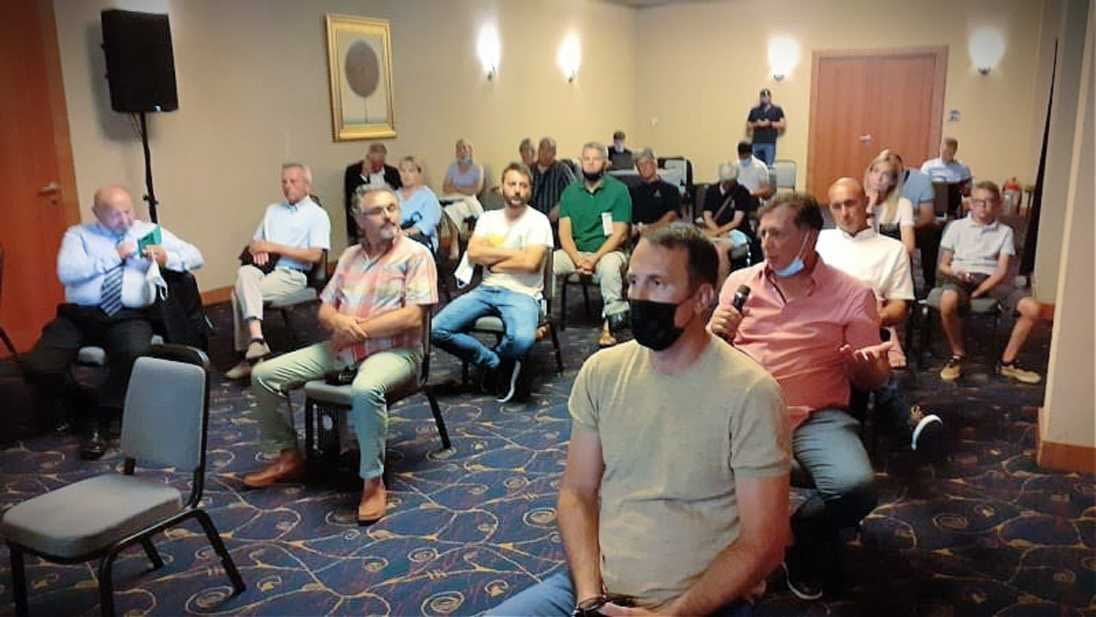The Croatian minister of agriculture has presented some of the countries’ top producers with a draft strategic plan to implement the new Common Agricultural Policy.
Along with recognizing the record achievements of Croatian producers at the 2021 NYIOOC World Olive Oil Competition, Marija Vučković and Anita Sever-Koren, the director of the Directorate for Agricultural Policy, told the producers that the new CAP would provide more benefits for smaller producers.
However, Vučković warned that the CAP would not solve all of the producers’ problems, and they would need to work together to achieve some changes.
See Also:New CAP Provides Plenty of Opportunities for Italian Olive GrowersShe pointed out that the Covid-19 pandemic had demonstrated their reliance on the hospitality and restaurant sector.
While funds from the emergency Covid relief package helped many Croatian farmers stay afloat through the crisis, new technologies and stronger producer associations are needed to strengthen the sector.
“There is no rural development without people, and no organic agriculture without organic food, or its producers,” she said, but added that only 12 percent – 15,000 to 16,000 families out of 180,000 – are currently in the system.
She said that farmers working informally should come into the system, emphasizing that it would be harder for them to obtain benefits from the CAP otherwise.
Sever-Koren said that the system established by the previous CAP would be reformulated. Currently, 30 percent of support goes to just seven percent of beneficiaries, or 1,324 farmers. She added that more farmers would receive a larger share of benefits in the future. Farmers with more than 81,000 hectares of land will see their subsidies cut.

Agricultural land in Dalmatia, Zagora or Istria, is of great interest to olive growers, who complained that they had limited access to bank loans to finance land purchases.
The minister replied that new laws were being drafted in three Dalmatian regions – Imotski, Drniš and Konavle – as a pilot project to address the issue.
Tomislav Duvnjak, the producer behind Vodice D.O.O. who helped organize Dalmatian producers and is primarily credited for their overwhelming success at the 2021 NYIOOC, warned that the process would take too long, requiring growers to fill out hundreds of documents. He said that the length and difficulty of the process had already caused some producers in the region not to bother.
Duvnjak added that producers from across Croatia needed to pay better attention to labeling their olive oils. He argued that improved labels would make them more competitive in foreign markets.
Several objections to the difficultly of doing business in Istria, primarily due to numerous administrative barriers, were made by Tedi Chiavalon from Vodnjan. He pointed out that due to the potential of domestic olive oil in the world, olive growers are looking for special status for their products or special programs to support them as olive cultivation becomes increasingly difficult to the peninsula due to the effects of climate change.
Chiavalon added that producers are falling behind their competitors in Italy and Spain. He cooperates with 28 olive growers in Istria, but this cooperation so far has not yielded a considerable enough market advantage.
Damir Buntić, another grower from the Vodice region, warned that the lack of a centralized olive oil association in the country was hindering its development. He warned that the sector would not move forward if the olive groves across the region were not fully accounted for.
Other producers said there is a growing problem with the irrigation of olive groves, which comes despite their claim that five rivers in Croatia run directly to the Adriatic Sea and provide plenty of water.
In terms of production going into the 2021 olive harvest, Mirko Krtelić, from the Valley of Olives near Nadin, said that he expected to lose 25 percent of his harvest as a result of the drought that dried out many of his trees’ blossoms this year.
According to the Central Bureau of Statistics, Croatia produced 40,278 hectoliters of olive oil in 2020, a decrease of 9.5 percent compared to 2019, but about seven percent above the rolling five-year average.









